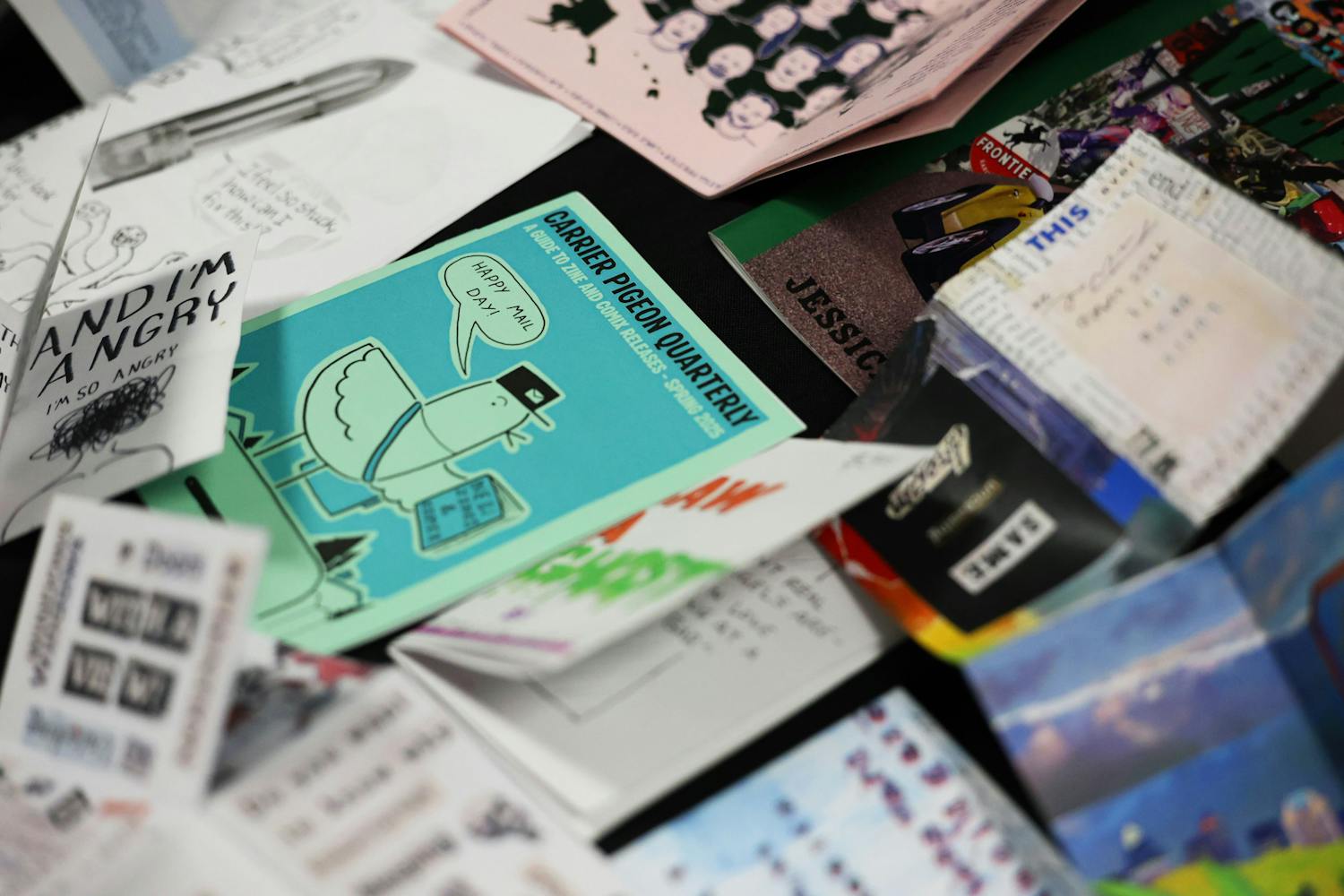It’s no secret: The Internet has wrung journalistic, film and music industries dry. The front pages of newspapers can be obtained free of charge via Newseum, any movie you crave — new or old — can be found online and, come on, who even pays for music anymore?
Even as vast cultural enterprises are at war with the vastness of the World Wide Web, one area has stayed reasonably safe: books.
Books and literature can play a huge role in personal development, as author Neil Gaiman told The Guardian on Oct. 14.
“I don't think there is such a thing as a bad book for children,” Gaiman said. He also discussed the challenges the publishing industry has and will continue to face in the digital age.
Publishing has managed to keep dry throughout the technological storm because as Evan Hughes wrote in an Oct. 8 New Republic article, “Books don’t want to be free.”
In fact, because e-books are cheaper to create, the publisher’s pay-off is actually quite a bit more than that of a paperback. E-books are inexpensive on the consumer’s side, too — talk about a win-win.
But why books? All this innovation over the years and books are the things that really stood the test of time? Well, yes. People still find value in literature, and although some authors might argue that $14.99 isn’t placing enough value on their work, it’s more than people are paying for movies, television and news (which is more often than not, nothing). The timeless quality of books has kept the industry alive.
While Twilight and Harry Potter fans can argue with one another until the end of time about which book series trumps the other, the fact is they’re both mythological and unrealistic. You’ll never have to give up your mortality in the name of love, and you likely won’t receive a letter from Hogwarts via owl.
Books, like movies, are often fantastical and unrealistic, evoking little more than far-fetched dreams and dreadful nightmares.
However, this isn’t always the case. Literary fiction has recently been proven to play a major role in our understanding of others’ emotions, as well as our own.
So yes, this excludes any mythological stories or Nicholas Sparks-esque romances, but how much did those novels really teach you about realistic social interaction?
A study conducted by David Kidd and Emanuele Castano published Oct. 3 in Science magazine concluded that those who engage themselves in literary fiction, which focuses more on the characters (as opposed to popular fiction, focusing more on the plot), tend to possess greater levels of empathy and better social skills.
Subjects were asked to read excerpts of literary fiction, which included works by recent National Book Award finalists or winners of the 2012 PEN/O; popular fiction, taken from Amazon’s best-seller list and non-fiction stories from Smithsonian Magazine. Those who were assigned to literary works scored highest on emotional and empathetic tests. They tended to have greater understanding of those around them and were more in touch with reality.
While the difference between “literary” and popular fiction can be debatable, the genre in the context of this project pertained to books that contained more complex and therefore more realistic characters with a lesser focus on the plot.
In popular fiction, the characters are often fully developed and stereotypical, thus allowing room for a messy yet intriguing plot. Literary classics such as J. D. Salinger’s “The Catcher in the Rye” are quite the opposite — an example of literary fiction. It’s plot is almost non-existent, but anyone who’s read the novel knows the attachment readers can form with Holden Caulfield, an incomplete and deeply flawed character that you piece together with parts of yourself.
Popular fiction is great; sci-fi can be addicting, and I’m a sucker for a good biography. But nothing can change you like an almost-developed character waiting for you to grow with them.
Never doubt the power of literature.
Who are we kidding? It’s the only form of culture for which we’re still willing to pay.
Reach the columnist at haley.tonetti@asu.edu or follow her on Twitter @haleytonetti



